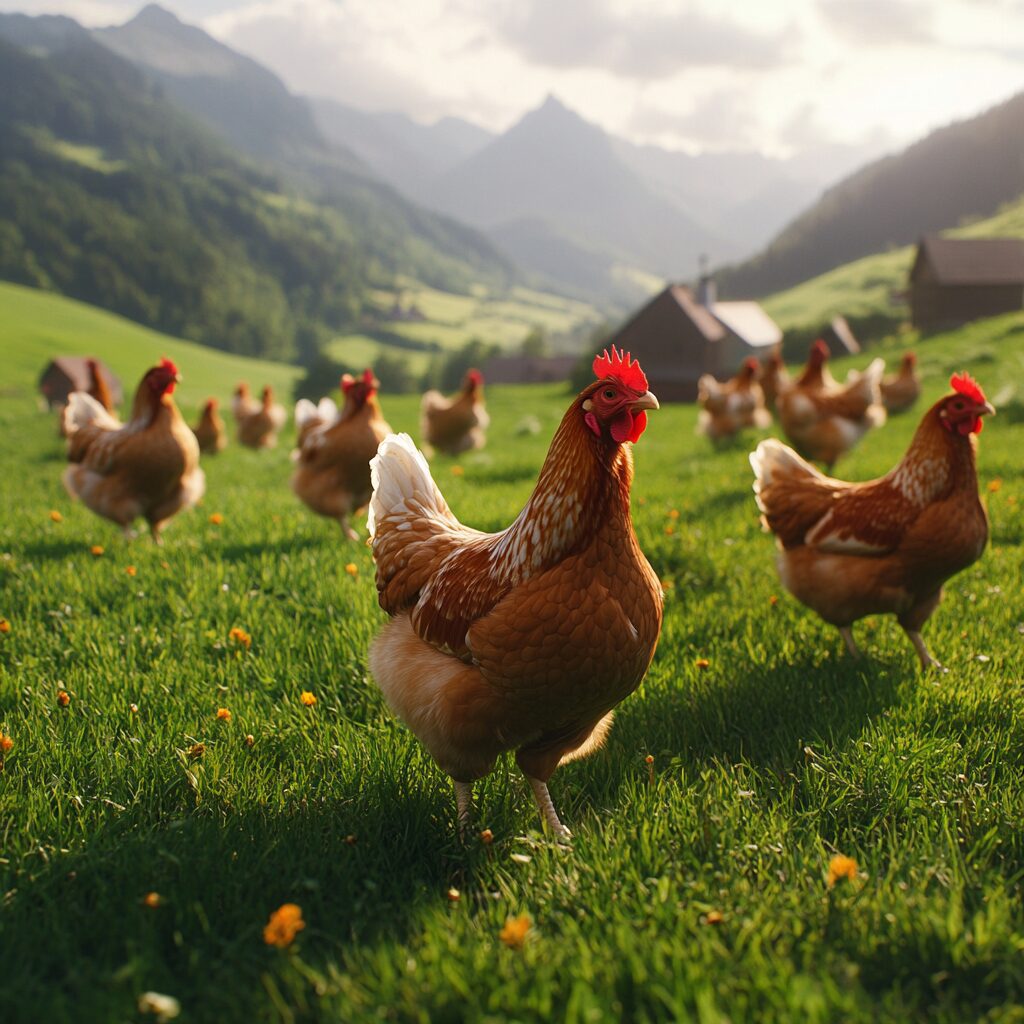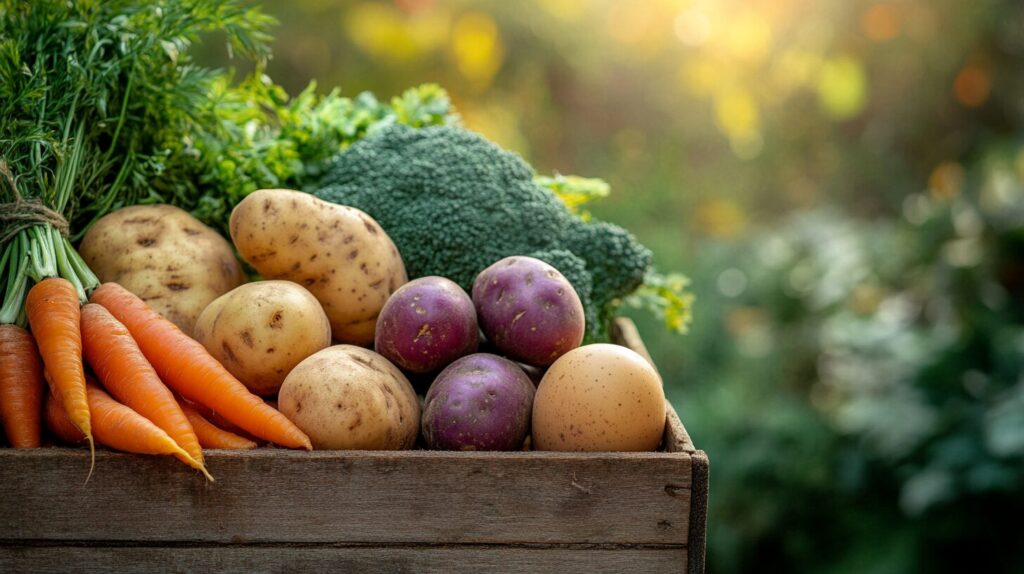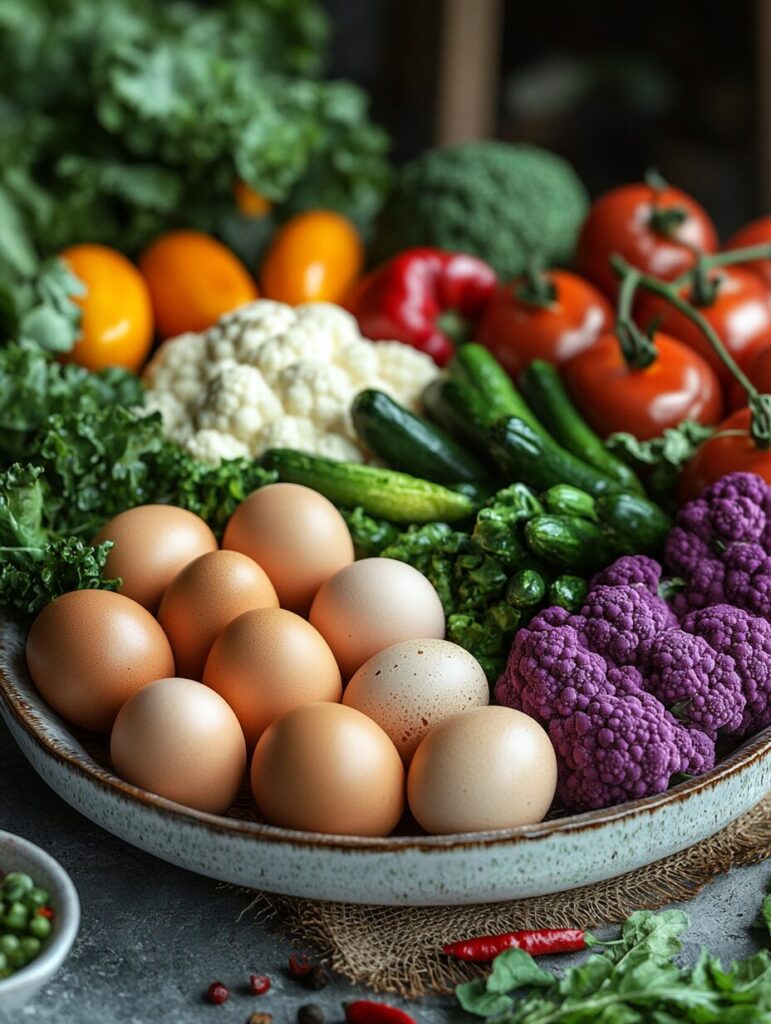Should you eat organic food? Is it really worth the price? The pros and cons of organic food are numerous. But what you need to know is if organic food is worth it for you.
I want to lay out the facts for you so you can decide for yourself-after all, you know yourself the best. And, my goal is to help you be the healthiest that you can be!
I firmly believe that some people need to make organic food a priority in their lives. Eating organic foods is a literal lifesaver for some people. I also believe that there are times when buying conventional might be right for you.
Table of Contents
What is Organic food?
Organic food is grown without using synthetic chemicals like pesticides or artificial fertilizers. It also avoids genetically modified organisms (GMOs). For animal products, like meat or eggs, organic means the animals were raised naturally without growth hormones or antibiotics and often had access to the outdoors. It’s all about farming in a way that’s better for the environment and possibly healthier for you.
Reasons to Know if You Need Organic Food
Health Awareness: If you’re aiming to reduce your exposure to synthetic pesticides, herbicides, or fertilizers, organic food may offer peace of mind.
Environmental Concerns: Supporting organic farming contributes to more sustainable practices, such as improved soil health and biodiversity, and reduced water contamination.
Ethical Farming Practices: Organic certification often involves stricter animal welfare standards, so if animal welfare matters to you, it could be worth exploring.
Allergies or Sensitivities: If someone in your household is sensitive to chemical residues, organic produce might be a safer option.
Food Quality Preferences: Do you find a difference in taste, texture, or quality between organic and conventional foods? Some people feel organic produce is superior in flavor.
Budget Considerations: Organic can be pricier, so it helps to prioritize items that may have higher pesticide residues, like certain fruits and vegetables.
Lifestyle Choices: For those following specific health or Eco-friendly lifestyles, organic food often aligns better with those principles.
Nutritional Perception: While scientific evidence is mixed, some believe organic produce might have slight nutritional advantages, particularly in antioxidant levels.
How to know if something is organic
It can be tricky to navigate the produce aisle and identify what’s truly organic. Foods labelled “USDA Organic” meet strict standards set by the U.S. Department of Agriculture. These standards dictate how the food is grown, processed, and handled. If a product qualifies, it earns the “USDA Organic” label.
However, small-scale producers earning less than $5,000 per year can also call their food organic as long as they follow USDA standards. The difference? They don’t have to go through the certification process and, therefore, can’t use the “USDA Organic” label.
When it comes to meat, you might encounter additional labels, such as:
- Animal Welfare Approved: Indicates the meat came from animals raised humanely on pastures or ranges by independent farmers.
- American Grass fed Association Certified: This guarantees that the animals were raised on pastures without antibiotics or hormones, fed a 100% forage diet, and born and raised on American family farms.
- Humane Farm Animal Care Certified: Shows that animals had outdoor access, weren’t confined, and were treated humanely, with antibiotics only used when necessary for their health.
Understanding these labels can help you make informed choices that align with your values!

Is organic the same as “natural”?
No, “organic” and “natural” are not the same. The term “organic” is a regulated label that requires products to meet specific standards, such as being free from synthetic pesticides, chemical fertilizers, and GMOs. Organic certification ensures these practices are followed, and you’ll often see labels like “USDA Organic” to confirm compliance.
On the other hand, “natural” is a much less strict and regulated term. It typically implies that the product has minimal processing and doesn’t contain artificial ingredients or additives. However, it doesn’t guarantee the food was grown or raised without synthetic chemicals, GMOs, or certain farming practices.
So, while they both sound appealing, “organic” has stricter standards and more oversight compared to “natural.” Do you find these labels confusing when shopping?
Benefits and drawbacks of organic food
Benefits
- Healthier Choices: Organic farming avoids synthetic pesticides, fertilizers, and GMOs, potentially reducing chemical exposure.
- Environmental Sustainability: Organic practices promote soil health, biodiversity, and reduced water pollution.
- Better Taste: Some people find that organic food has a fresher, more natural flavor.
- Higher Animal Welfare Standards: Organic meat and dairy come from animals raised without hormones or antibiotics and often in humane conditions.
Drawbacks
- Higher Costs: Organic products are typically more expensive due to labour-intensive farming methods.
- Limited Availability: Organic options may not always be accessible, especially in smaller stores or rural areas.
- Shorter Shelf Life: Organic food may spoil faster without preservatives.
- Nutritional Debate: Scientific studies vary on whether organic food is consistently more nutritious than conventional options.8h
Highest and lowest pesticide levels:
Highest
- Strawberries.
- Spinach.
- Kale, collards and mustard greens.
- Nectarines.
- Apples.
- Grapes.
- Peaches.
- Pears.
- Bell and hot peppers.
- Cherries.
- Blueberries.
- Green beans.
Lowest
- Avocados.
- Sweet corn.
- Pineapple.
- Onions.
- Papaya.
- Asparagus.
- Mushrooms.
- Cabbage.
- Honeydew melon.
- Kiwi.
- Carrots.

Non-organic foods like fruit, vegetables, whole grains, legumes and eggs are nutrient-dense and beneficial for our health. It’s far more important to get your five-a-day, and enough lean protein and dairy, than to limit yourself to only organic. Doing so could mean you miss out on a healthy, varied diet.
Getting your minimum five-a-day of fruit and vegetables, whether they’re organic or not, will help supply the vitamins and minerals you need for good health. Fruit and veg are also an excellent source of fibre, which helps support a well-functioning digestive system and balance blood sugar levels.
Do be wary of any processed or high-sugar foods that claim to be organic, such as cakes and biscuits. They may give the impression of being a healthier choice than other sweet treats, but it’s rarely the case.
If budgets are tight, it’s worth remembering that many small, local producers adopt organic practices but can’t afford the cost of organic certification. You can find many of these producers at local farmer’s markets. Buying locally, from one of these markets, allows you direct access to the producer and all of his/her knowledge of their product.
